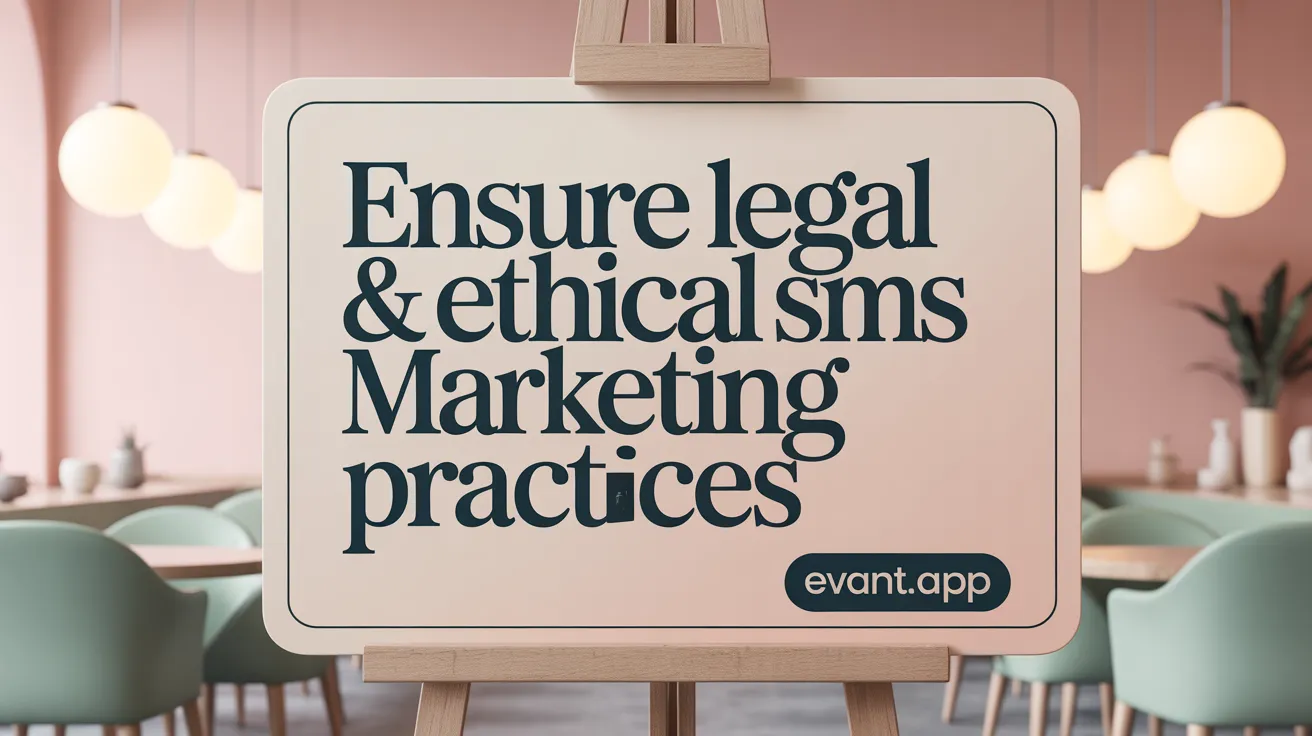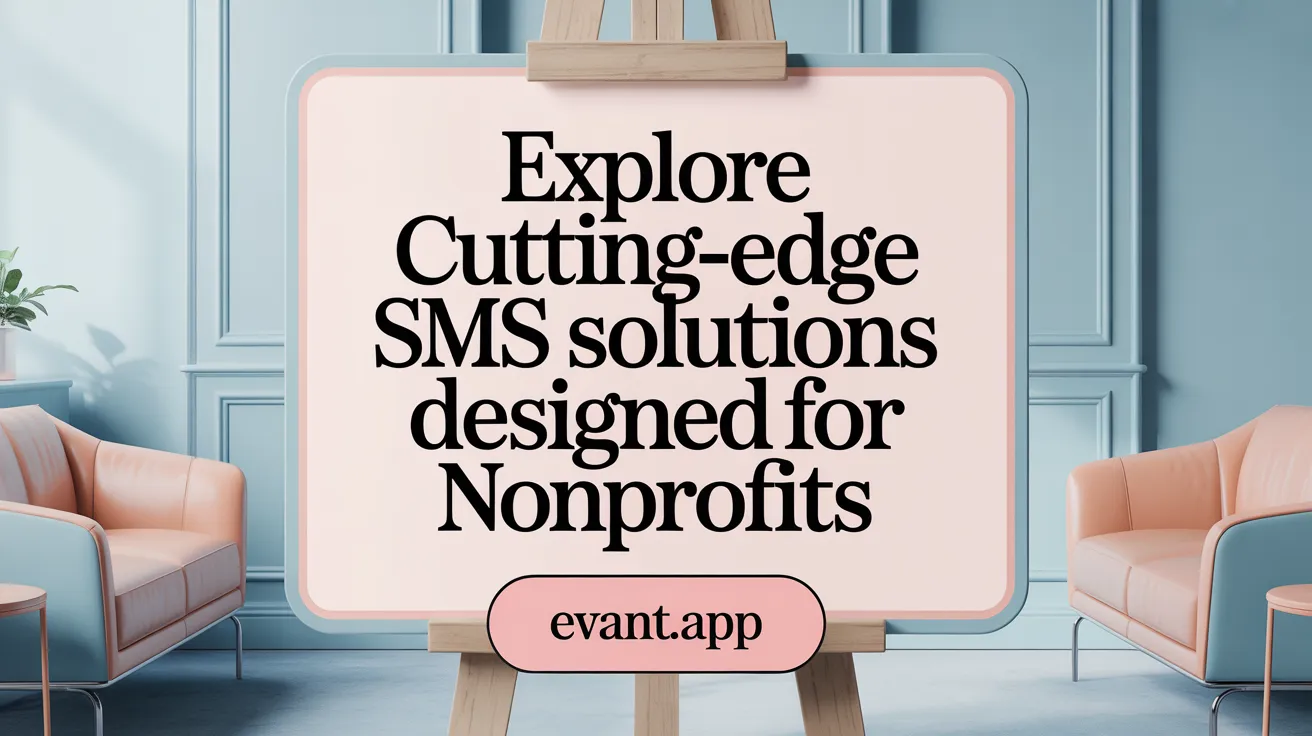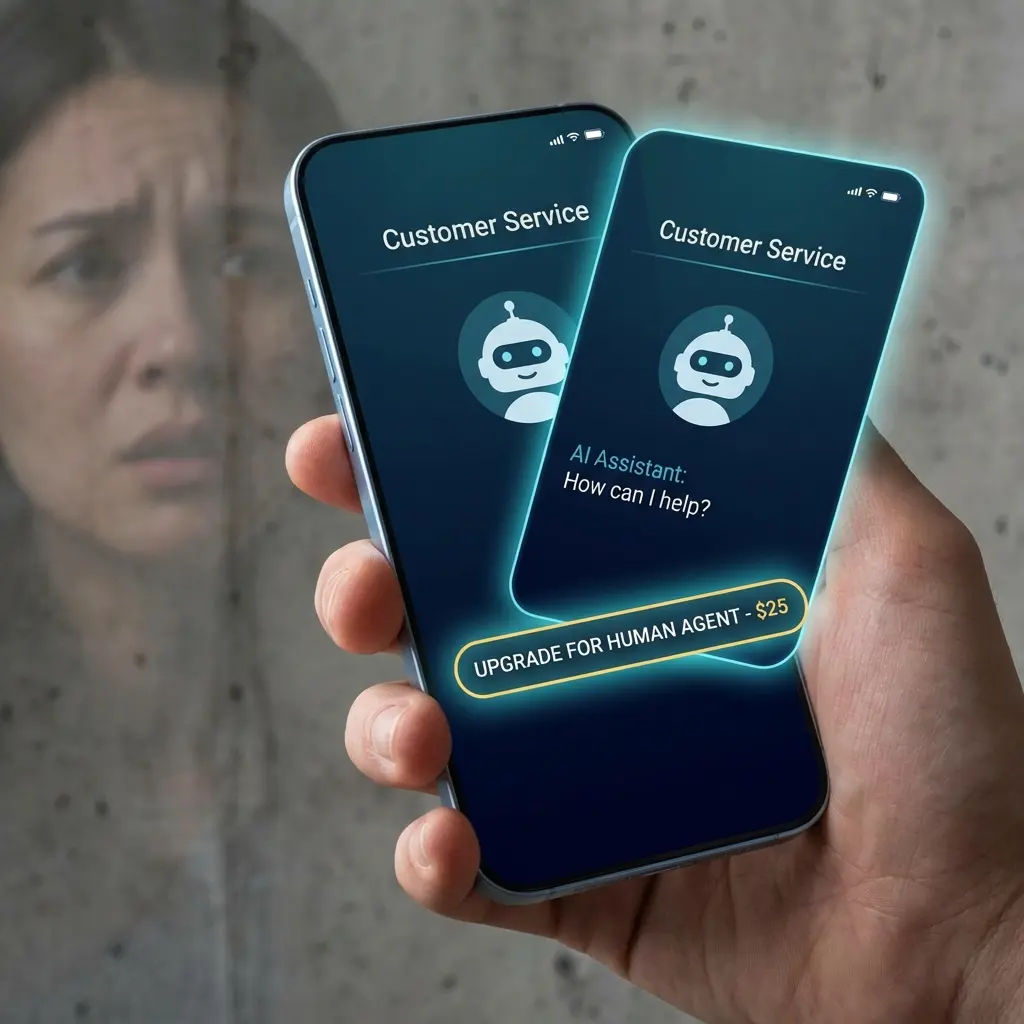Harnessing SMS for Community Events: Why It Matters
Community events thrive on timely, direct, and engaging communication. SMS marketing stands out as a powerful tool with a remarkable 98% message open rate and rapid recipient response times, often within five minutes. For nonprofits and community organizers, selecting the right SMS platform can transform outreach efforts, boost event attendance, and deepen supporter relationships through personalized, targeted messaging. This guide explores how to choose the best SMS platform tailored for community events, highlighting features, legal compliance, and strategic considerations to help you make informed decisions.
Core Features to Consider in an SMS Platform for Community Engagement

What features and benefits should be considered when choosing an SMS platform for community events?
When selecting an SMS platform for community events, it's vital to focus on features that promote direct, human-focused communication. Two-way messaging allows supporters to respond, ask questions, or confirm participation, creating a more personal connection.
Automation tools are essential for managing high message volumes, scheduling timely reminders, and sending bulk updates efficiently. This ensures supporters receive relevant information without manual effort.
Personalization and segmentation enable targeted messaging based on supporter interests, demographics, or past engagement, increasing message relevance and boosting participation.
Advanced analytics and reporting tools help organizers monitor engagement rates, track click-throughs, and refine future communication strategies. Real-time interaction capabilities ensure timely responses, especially for urgent updates or emergencies.
Security and regulatory compliance are non-negotiable to protect supporter data and adhere to laws such as TCPA. Accessibility across devices ensures that all community members can receive and respond to messages regardless of their technology.
Ultimately, choosing an SMS platform that facilitates authentic, personalized conversations will strengthen community bonds and increase the effectiveness of event outreach.
How do you select an SMS platform suitable for community events?
Selecting the right platform involves evaluating several key features. Mass and group messaging capabilities allow sending bulk messages to large audiences efficiently.
Automated scheduling ensures timely communication, such as reminders for upcoming events or volunteer shifts. Two-way communication features enable supporters to engage actively, fostering a sense of community.
Analytics and reporting tools provide insights into engagement levels, helping refine messaging strategies over time.
Integration capabilities with CRM systems or event management tools streamline data management and enable personalized outreach.
Cost-effectiveness and nonprofit discounts can make solutions like Emitrr more accessible. Ensure the platform complies with legal requirements and is user-friendly.
Platforms like Emitrr stand out by offering automation, personalized messaging, and seamless integration with popular CRM tools like Salesforce, optimizing engagement efforts for community events.
Comparing SMS Platforms: Criteria and Best Practices for Community Organizers

When choosing an SMS platform for community events, organizers should consider several important factors to ensure effective outreach and compliance. Starting with legal compliance, it’s essential to verify that the platform adheres to regulations such as the Telephone Consumer Protection Act (TCPA). This involves ensuring that proper consent is obtained from supporters before messaging and that opt-out options are clear.
Data security and privacy are equally vital. The platform must protect personal information and provide secure storage, in line with privacy laws.
usability and ease of use can be assessed through demos or free trials, allowing organizers to test the platform’s interface and features. A user-friendly system saves time and reduces errors during campaigns.
Feature set is another critical criterion. Look for platforms offering bulk messaging, automation for scheduling and follow-ups, segmentation for targeted outreach, and analytics to track performance. Automation features, such as autoresponders and keyword triggers, help streamline communication.
Integration capabilities with existing tools like Customer Relationship Management (CRM) systems, donation platforms, and email marketing software are essential for seamless data management. A platform that integrates well reduces manual work and ensures consistent messaging.
Scalability and pricing models should match organizational needs. Consider whether the platform can handle large contacts lists during campaigns and if the costs align with the budget. Transparent pricing with no hidden fees is preferable.
Finally, the quality of customer support—including onboarding assistance, troubleshooting, and ongoing help—can significantly impact the success of SMS campaigns. Access to knowledgeable support ensures quick resolution of issues.
By thoroughly evaluating these aspects, community organizers can select an SMS platform that enhances engagement, maintains compliance, and fits their organizational scale and budget.
Legal Compliance and Setup: Navigating SMS Marketing Regulations for Nonprofits

What legal considerations and setup procedures should be observed for SMS marketing in a community or nonprofit context?
Nonprofits engaging in SMS marketing must strictly follow legal rules to protect supporters' privacy and ensure smooth communication. The Telephone Consumer Protection Act (TCPA) is a primary regulation that governs how organizations can send promotional text messages. Under the TCPA, prior express consent is required before any marketing messages are sent. This consent must be documented, which can be achieved through opt-in processes like online forms, checkboxes, or QR codes at events.
It's also important to clearly identify the sender in each message. Friends and supporters should know which organization is reaching out. Including a straightforward opt-out option, such as replying 'STOP', ensures recipients can easily decline future messages. Once a recipient opts out, that organization must honor the request immediately.
For nonprofits, there’s some flexibility. They are considered charitable organizations and can often contact prior supporters even without explicit new consent, provided the initial relationship was established within reasonable expectations. They are also allowed to reach out to phone numbers on the Do Not Call Registry for charitable purposes. However, maintaining accurate records of when consent was obtained and tracking opt-outs is crucial.
Messages should be sent during appropriate quiet hours—avoiding late-night or early-morning times—to respect recipients' privacy. Using compliant, SOC-enabled texting platforms can help manage these processes efficiently. Regular audits and updates to compliance procedures are recommended to adapt to evolving regulations and maintain supporter trust.
By following these procedures—obtaining documented consent, offering easy opt-outs, and identifying the sender—nonprofits can build effective, legal SMS campaigns that foster engagement without risking legal issues.
Making the Right Choice: Steps to an Informed SMS Platform Decision
When selecting an SMS platform for community communication, understanding your organization’s specific needs is fundamental. Start by defining your primary goals—whether it’s increasing event attendance, mobilizing volunteers, fundraising, or advocacy efforts. This clarity helps to identify essential features such as personalization capabilities, automation, and multimedia messaging.
Next, evaluate how well potential platforms can integrate with your existing tools like customer relationship management (CRM) systems, e-commerce tools, or email marketing platforms. Seamless integrations streamline workflows and enhance data consistency across channels.
Legal compliance is crucial; verify that the platform supports proper opt-in and opt-out processes, including compliance with regulations such as TCPA and CTIA. Ensure that platforms offer features like consent management, opt-out instructions, and sender identification to avoid legal issues.
Features like triggered messaging, two-way conversational ability, and detailed analytics should be prioritized. These capabilities enable targeted, timely communication and allow you to measure campaign effectiveness. Consider whether the platform supports A/B testing to optimize content, and whether it offers list growth tools such as keyword campaigns, QR codes, or web forms.
Cost structure and scalability are also vital. Review pricing models—monthly subscriptions, pay-as-you-go options, or tiered plans—and ensure they accommodate your current supporter base and future growth. Platforms should be scalable to support larger volumes and upcoming functionalities like AI personalization.
To make an informed decision, utilize free trials and carefully review user feedback and case studies. Comparing support quality, ease of use, and platform reliability will help ensure the chosen system effectively meets your goals now and as your community evolves.
Practical Tips for Choosing an Effective SMS Platform for Community Events

Selecting the right SMS platform is crucial for successful communication during community events. Start by evaluating platforms that are simple to set up and offer an intuitive user interface, making it easier to manage campaigns efficiently. Features like easy integration of sign-up methods, such as QR codes and Text-to-Join, help quickly build a subscriber list directly from event locations or social media.
Regulatory compliance is non-negotiable. Ensure the platform adheres to laws like TCPA, CTIA, and GDPR, including proper opt-in and opt-out options. This not only keeps your organization legally protected but also maintains trust with your supporters.
Message deliverability and open rates are vital indicators of campaign success. Opt for platforms with a proven delivery rate above 98%, ensuring that your messages reach attendees in a timely manner. Incorporate automation features for sending reminders or updates automatically, and support multimedia content such as images, GIFs, or videos to increase engagement.
Integration with your existing Customer Relationship Management (CRM) and marketing tools streamlines data synchronization, enabling personalized messaging based on supporter data. Robust analytics and reporting functionalities allow you to evaluate campaign performance, track engagement, and fine-tune future outreach strategies.
Scalability and reliable customer support are essential as your community grows. Choose platforms that can handle high message volumes and provide responsive assistance. Conduct a trial run to assess usability, verify feature availability, and ensure the platform suits your specific needs before committing.
By considering these aspects—ease of setup, compliance, deliverability, automation, integration, and support—you can select an SMS platform that enhances your community event outreach, fosters supporter engagement, and maximizes your event’s success.
Innovative SMS Platforms Tailored for Community and Nonprofit Success

What are some platform examples like Emitrr, AudienceTap, and Tatango?
Emitrr is a comprehensive SMS solution designed specifically for nonprofits, featuring two-way conversational texting, appointment scheduling, AI-powered responses, and seamless integration with platforms like Google Business Profile. It offers customizable templates and workflows, making it ideal for managing supporter communications.
AudienceTap is another versatile platform tailored for community and small business use, emphasizing ecommerce features such as Text-to-Buy and QuickCarts. It supports list building via QR codes, web forms, and Text-to-Join, along with robust segmentation capabilities through surveys. Its pricing starts at $29/month, with a free trial offered.
Tatango specializes in SMS communication for political and nonprofit sectors. With over 14 years of experience, it provides tools for building workflows, segmenting subscribers, automation, and detailed data analysis. Tatango supports up to 6 million texts per hour, and uses dedicated short codes for enhanced control and branding.
What specialized features and discounts do nonprofit platforms offer?
Nonprofit-focused SMS platforms often include features like donor management, event reminders, volunteer recruitment, and advocacy campaigns. Many also provide discounts or grants—Emitrr, for instance, offers a 15% discount upon verification.
Security is a priority, with dedicated short codes ensuring responsible communication, compliance, and reputation management. These platforms often include strong data protection policies tailored for nonprofit needs.
How is automation and AI driving SMS messaging?
Automation allows scheduling and trigger-based messaging, reducing manual effort and ensuring timely outreach.
AI-driven features enable personalized responses, quick query handling, and intelligent scheduling. Emitrr’s AI-powered responses improve supporter engagement by providing relevant, instant replies.
What does two-way conversational texting mean?
Two-way texting fosters engagement by allowing supporters to respond, ask questions, and interact directly with nonprofits. Emitrr’s platform, for example, supports real-time conversations, making volunteers, donors, and supporters feel more connected.
What is included in advanced analytics and reporting?
Platforms like Tatango offer comprehensive analytics, including delivery rates, click-throughs, opt-out rates, and message performance. These insights help nonprofits refine strategies, improve engagement, and measure ROI.
How do ecommerce and fundraising integrations enhance campaigns?
Ecommerce features enable direct sales via SMS, such as merchandise or event tickets, improving fundraising outcomes. Integrations with payment systems streamline donations and purchases, creating a seamless supporter experience.
Why are security measures and dedicated short codes important?
Dedicated short codes prevent shared reputation issues and ensure consistent branding. Security protocols protect supporter data, critical for maintaining trust and compliance.
| Platform | Notable Features | Discounts/Costs | Integration & Security |
|---|---|---|---|
| Emitrr | Two-way chat, AI responses, scheduling, Google Profile integration | 15% nonprofit discount upon verification | Dedicated short codes, GDPR compliant |
| AudienceTap | Ecommerce capabilities, segmentation, automation | Starting at $29/month, free trial | Zapier integration, web forms |
| Tatango | Large-scale messaging, workflows, detailed analytics | Contact for pricing | Dedicated short codes, high security standards |
Leveraging SMS as Part of a Broader Community Communication Strategy
How can SMS be integrated with email, social media, and CRM systems?
To maximize engagement, organizations should connect SMS marketing with their broader digital platforms. Using CRM systems like Norby allows seamless integration of SMS with email and social media, enabling a unified communication approach. This integration helps in managing contact data, personalizing messages, and tracking overall campaign performance.
Platforms such as RallyCorp and AudienceTap facilitate this connection, supporting automated workflows that pass data between channels. For example, an event registration through email can trigger SMS reminders, increasing attendance.
How does audience segmentation improve messaging relevance?
Segmenting audiences based on demographics, preferences, or past behaviors allows organizations to send tailored messages. This targeted approach boosts engagement rates since recipients receive content that resonates with their interests.
Tools like AudienceTap and Tatango enable detailed segmentation with features such as polls and surveys. By refining message content for specific groups, nonprofits can improve response rates and foster stronger supporter relationships.
What role does testing play in optimizing SMS campaigns?
Regular testing, including A/B testing, ensures messages are effective and well-received. By experimenting with different message formats, timing, or calls to action, organizations can identify what works best.
Analytics from platforms like Twilio and Upland Mobile provide data on open rates, click-throughs, and opt-outs. Analyzing this data guides continuous improvement, making campaigns more impactful over time.
How can organizations track ROI and measure success?
Metrics such as delivery rates, engagement levels, donation conversions, and opt-out rates help assess campaign effectiveness. Using analytics dashboards, nonprofits can quantify the return on investment and justify future marketing efforts.
For example, tracking link click-throughs connected to donation pages reveals how SMS contributes to fundraising goals. Monitoring unsubscribe rates also informs compliance and message relevance.
Why combine transactional, promotional, and relationship-building messages?
A balanced mix of message types nurtures ongoing supporter engagement. Transactional messages like payment confirmations enhance trust, while promotional texts broadcast special offers or events.
Relationship messages, including behind-the-scenes stories or exclusive content, deepen supporter bonds. Integrating these within an SMS strategy ensures a holistic communication approach.
What are future trends like AI personalization and Rich Communication Services?
The future of SMS marketing points toward AI-driven personalization, delivering highly relevant messages based on supporter data. Technologies like Rich Communication Services (RCS) will add interactive features such as read receipts, location sharing, and multimedia messages.
While RCS is still emerging, it promises richer experiences similar to chat apps. These advances will enable nonprofits to engage supporters more effectively, fostering a more dynamic and interactive community.
| Aspect | Description | Tools & Platforms |
|---|---|---|
| Integration | Sync SMS with email, social media, and CRM systems | Norby, RallyCorp, AudienceTap |
| Audience Segmentation | Divide supporters into targeted groups | AudienceTap, Tatango |
| Testing & Optimization | Use A/B testing and analytics to refine messages | Twilio, Upland Mobile Messaging |
| ROI Measurement | Track engagement, donations, and unsubscribes | Dashboards within SMS platforms |
| Message Types | Combine transactional, promotional, relationship content | All major SMS platforms |
| Future Innovations | AI personalization, RCS features | Emerging SMS and RCS technologies |
By combining these strategies and tools, nonprofits can create a robust, engaging, and responsive community communication ecosystem.
Choosing Wisely: Empowering Your Community Through SMS
Selecting the right SMS platform is pivotal to the success of your community events and organizational goals. By focusing on essential features like automation, two-way communication, and advanced analytics, while ensuring strict legal compliance and ease of integration with your existing tools, you empower your community outreach with efficiency and personal touch. Utilizing specialized platforms with nonprofit discounts and continuously optimizing your communication strategies through testing and data insights will maximize engagement and impact. Ultimately, the ideal SMS platform does more than send messages—it builds relationships, drives action, and strengthens community bonds, making every event more successful and meaningful.
References
- How to Choose the Right SMS Marketing Platform
- Text Marketing for a Good Cause: SMS for Nonprofits
- The Power of Community SMS Marketing: A Comprehensive ...
- Best Texting Platforms for Nonprofits in 2025
- How to Choose the Right Platform for Your Nonprofit's ...
- Community SMS vs AudienceTap
- SMS Marketing Platforms: Reviews for Nonprofit ...
Related Blogs


How Community Churches Should Leverage SMS to Boost Engagement
Michael PedoeemStruggling with low church attendance? Discover how to leverage SMS to reach 98% of your congregation instantly and review the top 5 church communication platforms.


SMS for Churches: A Guide to Better Engagement
Michael PedoeemLearn how SMS for churches can boost engagement, improve communication, and streamline event management. Discover best practices for church texting today.
Ready to transform your community










